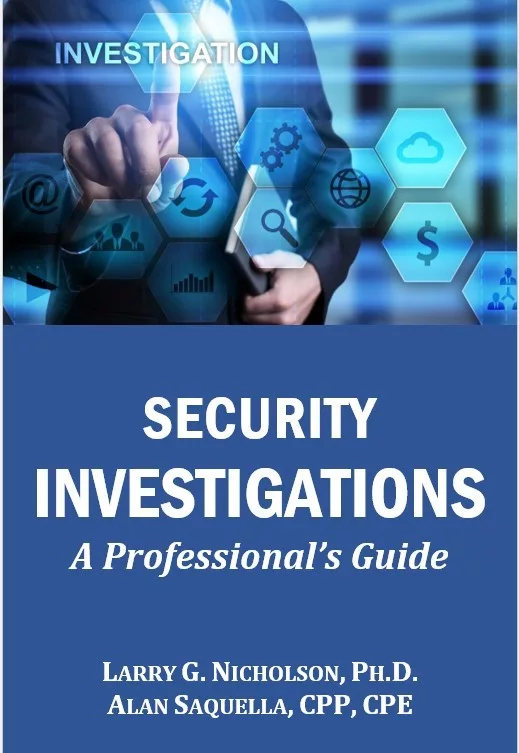Securing sports betting: A new casino security challenge

Image from Unsplash
Casinos and gambling are changing faster than anticipated, but it doesn’t mean casino security leaders have to play catch-up. From sports betting to casino gaming, the industry is leaning heavily on technology. Journey along to learn how sports betting has evolved and how casino security leaders are bolstering safety and reimagining casino-player relationships.
How sports betting has changed
Legally placing a bet on a sports team to win the big game is quite new. Sports betting has undergone a dramatic legal transformation, empowering both bettors and gaming venues to do more.
History of sports betting
Dating all the way back to the early 1960s, legal sports wagering was largely nonexistent. That’s because the Interstate Wire Act prevented wagering on sports across state lines. At the time, individuals either couldn’t go to a bookmaker or had to go to Nevada to place bets. Flash forward to 1992, when the government cracked down even harder with the Professional and Amateur Sports Protection Act (PASPA). This legislation effectively banned sports wagering nationwide, giving Nevada and its licensed sports pools a monopoly.
Years went by with little change for the industry — until 2018. After years of states challenging gambling and sports betting laws, the Supreme Court finally heard the case. Deeming it unconstitutional, the Court overturned the PASPA, putting authority in the hands of individual states and lifting the federal ban on sports betting.
Today, over 30 states have voted to allow betting on sporting events — in person, at the casino, and online — with $150 billion dollars having been wagered nationwide since 2018 and close to $2 billion dollars in taxes paid.
Growth of sports betting
After a long journey, sports betting is now being rapidly adopted, and the numbers speak for themselves. In 2021 alone, the industry saw a flurry of activity:
- $50 billion wagered
- 15 million people placed bets online or in person
Legalization has had a domino effect, too. Within two weeks of opening up online gambling, New York generated $600 million. This puts pressure on states that are still on the fence in terms of the potential profit windfall. After all, prior to New York’s sports betting legalization, residents simply drove to New Jersey and spent money there.
Security challenges and opportunities for casinos
There’s a reason it’s called money laundering. Bad actors take measures to “wash” dirty money, putting aside their winnings for a time before gambling with it again to avoid detection. Between money laundering, fraud and theft, casinos must be extra vigilant—something that adds both pressure and opportunities for operations.
Casinos can be treated the same as banks
Because they facilitate large volumes of money changing hands, sports betting operations have the potential to be classified as banks. With this label, they become subject to the Banking Secrecy Act and are monitored and regulated by FinCen. That means casinos must enact and adhere to specific policies, including the following:
- They must have a written anti-money laundering (AML) compliance policy.
- They must file currency transaction reports for any cash transaction over $10,000.
- They must file suspicious activity reports (SARs) for any transaction if deemed suspicious, regardless of the amount.
Adding more complexity, casinos dealing in sports wagering are also required to keep financial records for three to five years, and the IRS can audit compliance with AML standards at any time. Keeping comprehensive records and data is essential for casinos. Within this context, the intel gathered by facial recognition technology becomes ever-more valuable.
Facial recognition adds layers of protection
A prime area for casinos to deploy facial recognition is at the point of sale (POS) — namely for things such as food and beverage. But with the proliferation of sports betting, bettors can also go to a POS at betting windows or kiosks to place wagers.
With facial recognition, security teams have a record of any given bettor’s face. The technology lets operators know when and where a suspicious person is present — whether they’re at the window making the bet or at the register buying coffee — and keeps you several steps ahead. As a result, casinos can watch as bad actors do something suspicious, flag it in the system to send an alert the next time that face is seen, or even approach individuals to enforce policies and procedures.
Benefits of technology to identify VIPs and self-excluded players
With the rise of sports betting at casinos, not all gamblers are treated equally. Facial recognition has historically focused on keeping bad actors out, but it has the power to identify the good, bad and in-between.
Identifying VIPs
In a casino environment, it’s valuable to recognize the best players and acknowledge them. In that vein, security leaders have two classes of value players to consider: VIPs and tiered players.
- VIPs invest the most in the business and want special treatment, and they make sure casinos know they're coming.
- Tiered players contribute significant money to the property and would appreciate a little extra.
Facial recognition helps by working with the player loyalty system. By putting players into the facial recognition system, casinos can tag them as high-value or VIP players. This simple act enables personalization because hosts are notified to greet major players when they visit.
Mitigating self-excluded player entry
Every state has a process for individuals to self-exclude or ban themselves from a gaming venue. It might mean players register online with individual casinos or even with the state, putting their name into a database of people who don’t want to be permitted entry to gamble.
With such a hefty responsibility, casinos historically looked to their loyalty system to identify whether someone was a known player and stopped all marketing to that person. However, that system limits what casinos can really do to enforce self-exclusion.
Self-exclusion is a gray area, because players don’t fit the mold of bad actors or VIPs, but they need to be monitored just as closely. This becomes even more important as Responsible Gaming initiatives become more prevalent. Facial recognition gives casinos more control. With it, casinos can stop self-excluded and banned players at the door.
Technology is paving the way to shape gaming experiences for changing audiences, as well as empower venues to enhance security.
Looking for a reprint of this article?
From high-res PDFs to custom plaques, order your copy today!







